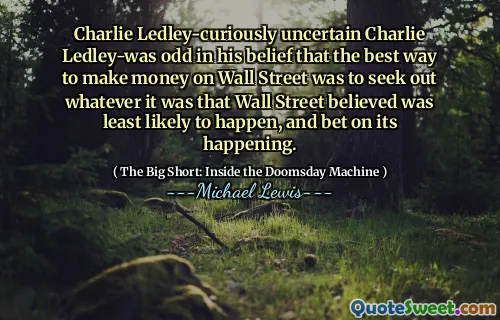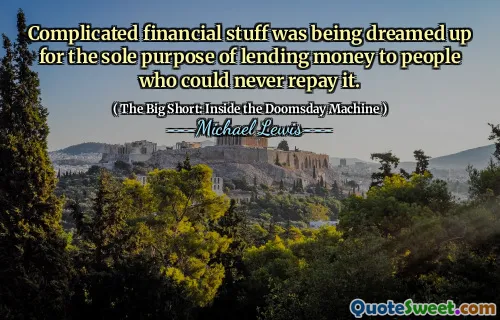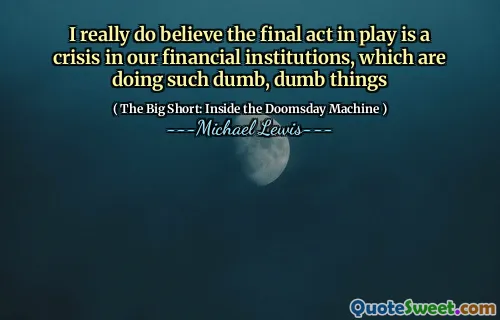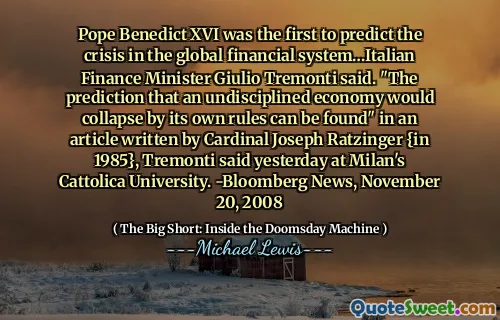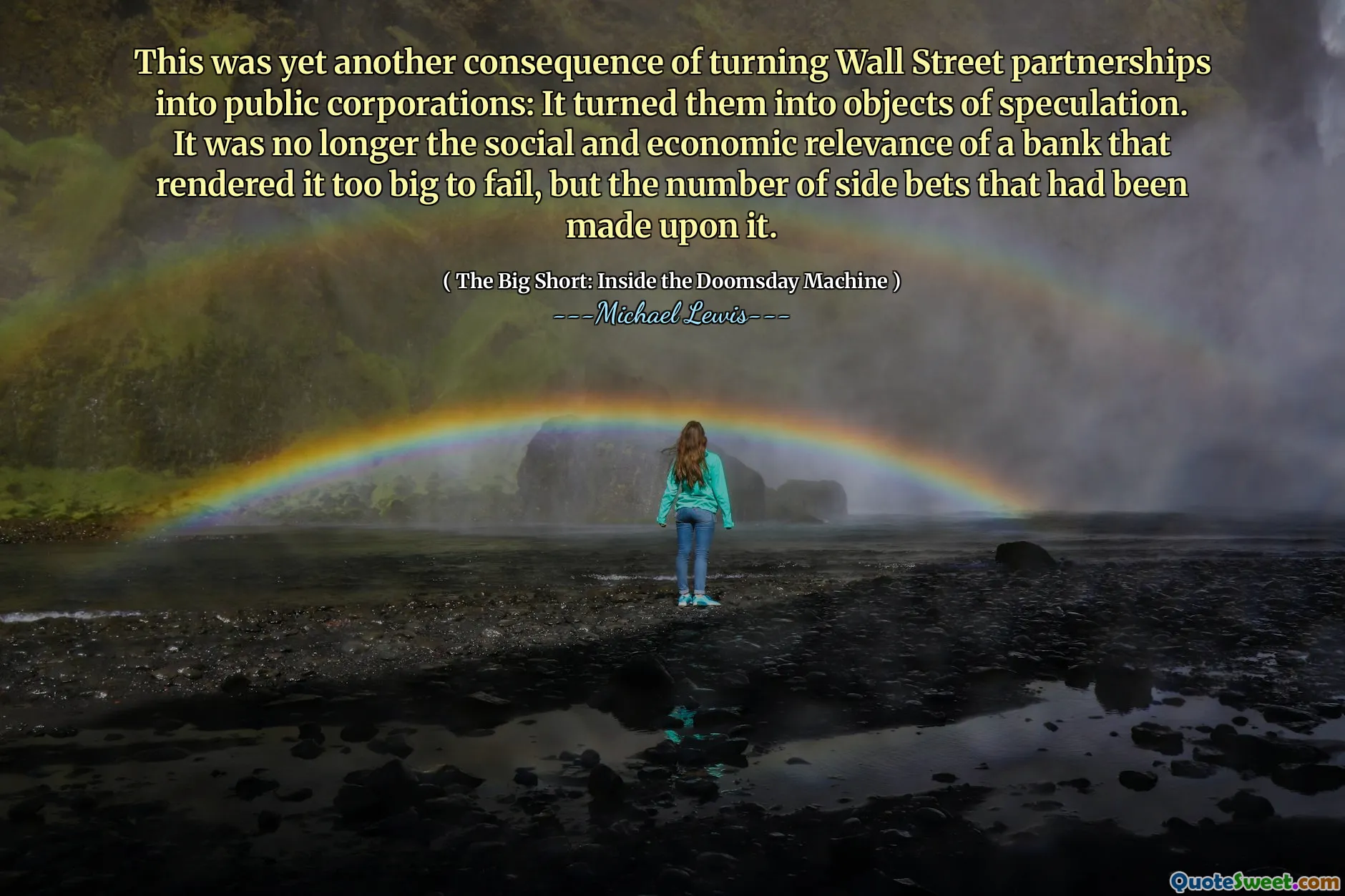
This was yet another consequence of turning Wall Street partnerships into public corporations: It turned them into objects of speculation. It was no longer the social and economic relevance of a bank that rendered it too big to fail, but the number of side bets that had been made upon it.
The shift from Wall Street partnerships to public corporations significantly changed the financial landscape. These corporations became subjects of speculation rather than being valued for their inherent social and economic impact. As a result, their worth was increasingly determined by external bets and market perceptions rather than their actual fundamental stability.
This transformation meant that the concept of "too big to fail" evolved; it was now based on how many speculative trades were made against a bank, rather than its core banking operations or its importance to the economy. This focus on speculation contributed to the instability in the financial system and underscored the risks associated with financial institutions becoming public entities.

